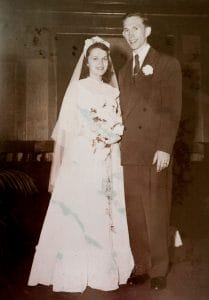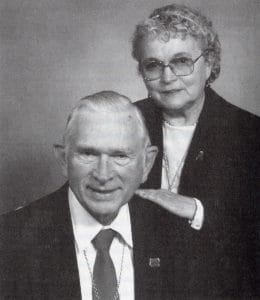In 1955, Graetz’s husband, Bob, a newly ordained minister, was assigned to the Trinity Evangelical Lutheran Church in Montgomery, Ala. A predominantly Black church; the Graetzes were white. They not only accepted the assignment, they chose to live in the predominantly Black neighborhood the church drew its congregation from. One of the people in the neighborhood was a lady named Rosa Parks, who was arrested after refusing to move when the driver of the bus she was riding on moved the “Whites Only” sign behind her. That led to a lengthy boycott of city buses, which eventually ate into the transit system’s budget. Bob and Jean Graetz were among the few whites in town who not only supported the boycott (Rev. Graetz was the only city clergyman to do so), but they helped their parishioners coordinate the boycott in a church meeting room. One area Black minister was selected to lead the boycott: Martin Luther King Jr.

Retribution was swift and harsh: angry whites dumped sugar into the Graetzes’ car’s gas tank and slashed its tires; they — and their children — received numerous death threats: bombs were planted at their home three different times. The third one was the largest, with 11 sticks of dynamite. A neighbor who was trained in explosives by the U.S. Army was able to disarm it. One group of bombers was arrested, but an all-white jury declared them not guilty. Neither Bob nor Jeannie would back down from their support of their congregation and neighbors. “My mother didn’t like to look at them as a team,” said Carolyn Graetz Glass. “She was happy to let our dad shine. But there was no Bob without Jeannie, and no Jeannie without Bob.” While her husband continued to preach, Jeannie organized in the background, such as setting up interviews for out-of-town reporters who wanted to meet with the boycott’s protestors and organizers.

“It’s not a one-off resolve,” said Jeanne Theoharis, a professor of political science at Brooklyn College, and the author of The Rebellious Life of Mrs. Rosa Parks. For the Graetzes to “do what they did requires doing it every day.” Indeed, when Bob received an assignment to a church in Ohio, he refused the move. But two years later, the church insisted they move, and they did, but returned to participate in larger demonstrations, such as the 1965 march from Selma to Montgomery to support the Voting Rights Act. They moved back for good in 2005, and Jeannie went back to school to finish her degree: she received her bachelor’s in elementary education in 2015. Rev. Robert Graetz died on September 20 at 92; Jean Ellis Graetz died at their home in Montgomery on December 16 from lung cancer, eight days before she would have turned 91.
